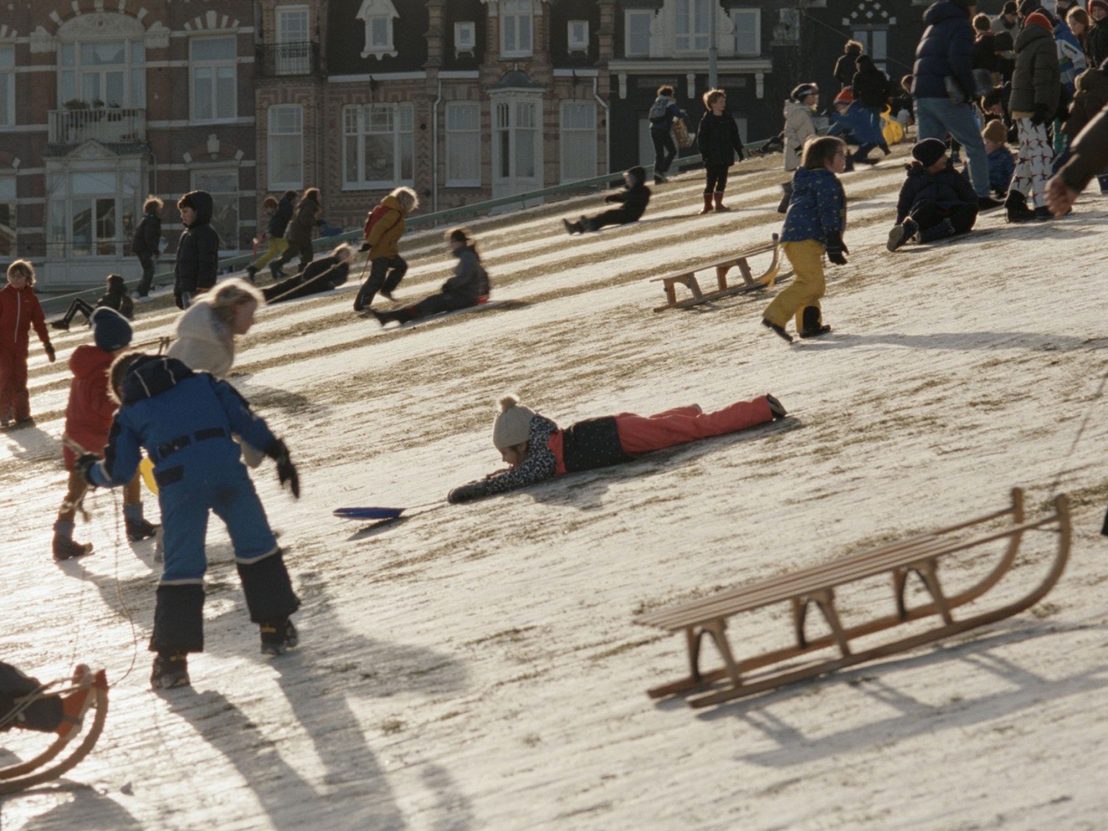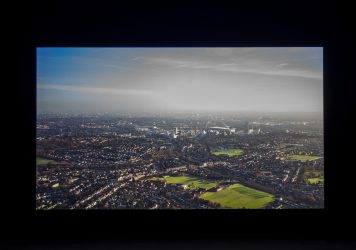
Steve McQueen's documentary contrasting present-day Amsterdam with its past occupation by the Nazis is a testament to the changing face of history.
Steve McQueen introduced the Cannes Special Screening of his 4.5 hour Holocaust documentary, saying: “It’s about what’s under your bed and on your doorstep.” The British artist-filmmaker has lived in Amsterdam for the past 27 years and it would seem as if the undersides of his bed and the contents of his doorstep had piled up beyond rhyme or reason.
Adapted from the book Atlas of an Occupied City: Amsterdam 1940-1945 by Bianca Stigter, McQueen’s partner, this documentary serves more as an index of violent death than anything approaching narrative cinema. The intentionally jarring central concept is rooted in a temporal and emotional discord between the images presented and the narrative on top of them. McQueen shoots contemporary Amsterdam (during the pandemic) frequently landing on fun or beautiful moments – dust motes floating in golden hour light, youths dancing to music as euphorically as in Lovers Rock. All the while, a sweet robotic voice (Melanie Hyams) gives the full name and potted story of someone who was once brutalised by the Nazis at the exact spot where this scene is unfolding.
[X] lived at [y] address on [z] floor and was murdered at the age 49. Or 22. Or 16. Or as a baby. [X] was taken to the transit camp Westerbork, then transferred to Auschwitz and murdered. Or to Mauthasuen and then murdered. Or to Bunchenwald and then murdered. With their mother. Or child. Or sibling. [X] was shot to death when the Order Police saw them out 2 minutes after curfew, or in a park where Jews weren’t allowed, or riding a bicycle wearing a Red Cross uniform draped with a Dutch flag.
In its most staggering moments it seems like McQueen has mounted a memorial for an entire city in which 80,000 Jewish residents shrank to 20,000. Amongst the stories of sadistic violence are stories of resistance. Forged documents, intrepid escapes, demeaning ordeals survived. Sometimes the footage from the present aspires to speak to the past in the form of protest songs and political rallies, while stupid joyous freedoms, like a teenage couple lazily caressing, seem sacred.
However there are many, many moments when so many stories have piled up on top of each other that one is numb, dazed, disconnected from the material. There has been a Herculean level of research in terms of respecting all the people mentioned here by including the bare minimum of their full name, meaning that there is a fleeting moment when the reality of who they once were holds the centre your attention, but they are almost instantly replaced by the next person and the next one and the next one.
There is an argument to be made that the atrocities committed during the Holocaust defy comprehension and a storyteller seeking to relay something of that experience need not be bound by conventional narrative considerations. Occupied City is, in many ways, the opposite of McQueen’s recent 24-minute installation film, Grenfell, a memorial forged out of space and silence, for there are stretches in Occupied City when we have been so barraged with variations of the same story that gravity is lost and terrible vital details form a uniquely stressful mode of ambient sound.
If his formal motives here are sometimes obscure, McQueen’s sincerity is never in question. Occupied City is a staggeringly ambitious feat of emotional stamina and in the unrelenting litany of horror stories presented here, one thing is clear: he wants us to remember something, anything.
To that end: one thing I will remember is the description of two middle-aged Jewish sisters who forged documents so that it seemed like they were the product of an affair their mother had with a non-Jewish man. Nonetheless, the suspicious occupying Nazis had them walk around with their skirts raised so that they could check if the women had “Jewish legs”. The sisters passed this absurd test and went on to help numerous other Jewish people to survive.
Published 17 May 2023

The artist, filmmaker and activist has produced one of his most powerful works ever in this meticulous 24-minute survey of a London crime scene.

Steve McQueen delivers a sublime party film for the ages in the second instalment of his Small Axe series.

By Aaron Hunt
The director reflects on the making of his triumphant ode to Black culture and resilience, Small Axe.